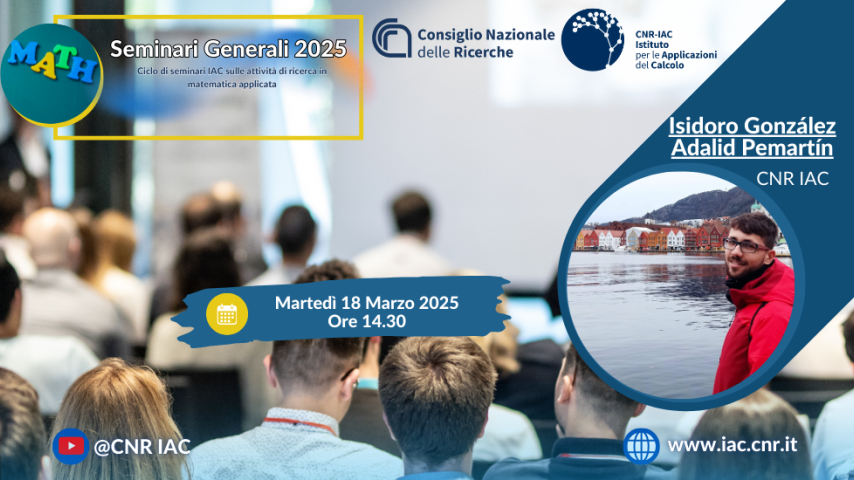
E' per martedì 18 marzo, il nuovo appuntamento con i Seminari Generali dell'IAC 2025.
Il relatore sarà Isidoro González-Adalid Pemartín, ricercatore recentemente assunto al CNR IAC, che si occupa di multifrattalità, comportamenti di scaling e transizioni di fase quantistiche in sistemi complessi.
Il talk, dal titolo Optimizing random number usage in Monte Carlo simulations: Reviewing the microcanonical method, si svolge in modalità mista in presenza e streaming (vedi link in calce) e sarà trasmesso sul canale YT dell'istituto.
Di seguito l'abstract.
The use of (pseudo-)random number generators nowadays extends from cryptography, security, and telecommunications to the entertainment industry (think, for instance, of computer games). Random number generators are ubiquitous in many research fields, including biology, medicine, economics, and physics. Their use has increased thanks to the development of better algorithms, more powerful hardware, and the appearance of new technologies that demand the use of random numbers, like artificial intelligence. However, their use is so intensive that the computational cost (among other possible problems) forces researchers to develop mitigation strategies. This problematic situation will undoubtedly happen in Monte Carlo simulations. In fact, people have developed various approaches to reduce or eliminate the cost of using random number generators. In particular, the microcanonical algorithm allows physicists to perform Monte Carlo simulations with a small quantity of random numbers. This talk will briefly review the main ideas behind (pseudo-)random number generators. Then, I will focus on their use of Monte Carlo simulations in the context of spin glass as an example to identify the possible problems associated with using random numbers, as well as potential solutions. Finally, I will introduce the microcanonical method, which we recently adapted to the study of spin glass through Monte Carlo simulations.







